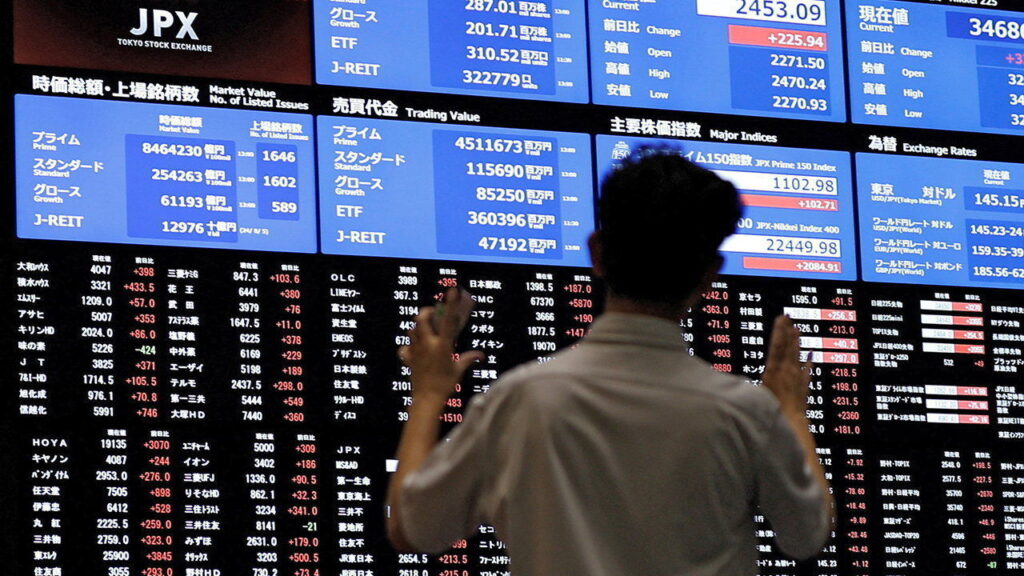Fears of an impending American recession have been causing stock markets worldwide to react with uncertainty and volatility. Among the most dramatic movements in response to this economic uncertainty have been seen in Japan. On August 5th, Japan’s Topix index experienced a sharp decline of 12%, marking its worst performance since the crash of 1987. Additionally, the yen, Japan’s currency, had strengthened considerably from its weakest point in 37 years. However, just one day later, the market saw a dramatic reversal with stocks rising by 9%, as investors seized the opportunity to purchase stocks at discounted prices. These significant fluctuations in the Japanese market have far-reaching implications beyond just the domestic investors and companies.
Japan’s status as a major economic player on the global stage means that its market movements are closely watched and have the potential to impact markets worldwide. The country’s financial strength and stability have historically made it a safe haven for investors during times of global economic uncertainty. However, the recent sharp swings in Japan’s stock market have raised concerns about the potential for increased volatility in global markets. As investors react to the news of a possible recession in the United States, the ripple effects are felt across borders and continents.
The uncertainty in global markets has led investors to seek out safe assets, such as the Japanese yen, which is traditionally seen as a stable currency during times of economic turmoil. The strengthening of the yen against other major currencies reflects a flight to safety by investors seeking to protect their investments. This has implications for Japanese exporters, whose products become more expensive in foreign markets as the yen appreciates. As a result, Japanese companies may face challenges in maintaining their competitiveness in the global marketplace.
The recent market movements in Japan also highlight the interconnected nature of the global economy. Fluctuations in one market can quickly impact others, creating a domino effect that reverberates around the world. As investors react to changing economic conditions, the movements of capital can have far-reaching implications for companies, industries, and economies. The interconnectedness of global markets means that a downturn in one country can quickly spread to others, creating a cascade of economic instability.
In response to the recent volatility, central banks around the world have taken measures to stabilize the financial markets and protect against further economic uncertainties. The Bank of Japan, in particular, has signaled its readiness to intervene in the market to prevent excessive fluctuations in the yen. These efforts are aimed at calming investors’ fears and restoring confidence in the market. However, the effectiveness of these measures remains uncertain, as market dynamics are influenced by a complex interplay of factors beyond the control of any single entity.
As the global economy navigates through uncertain waters, investors and policymakers alike are closely monitoring market developments for signs of potential risks and opportunities. The recent turbulence in Japan’s stock market serves as a stark reminder of the fragility of the global financial system and the need for vigilance in the face of economic uncertainties. While the future remains uncertain, one thing is clear – the interconnectedness of global markets means that what happens in one part of the world can quickly impact others, creating a ripple effect that reverberates across borders and continents.



